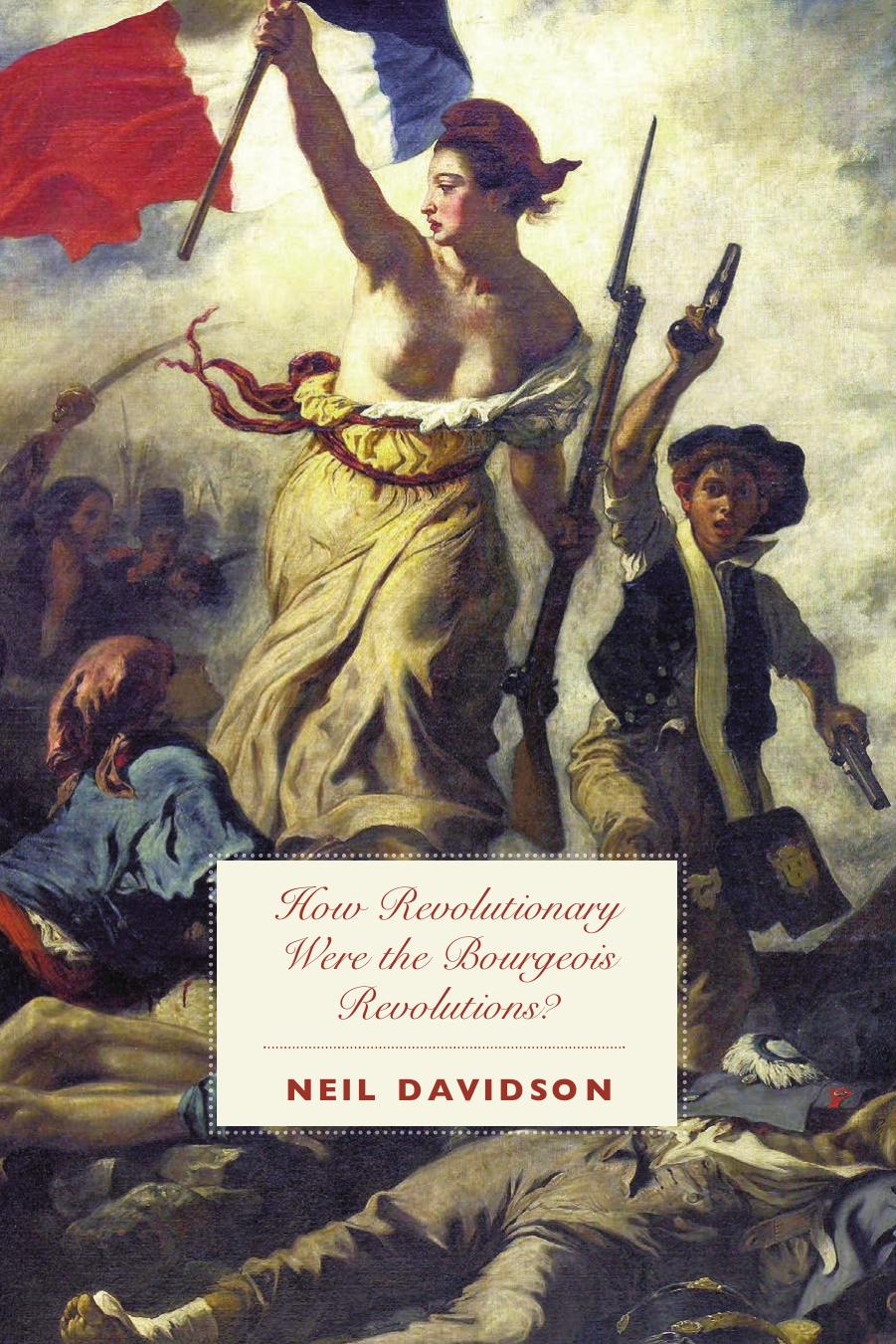How Revolutionary Were the Bourgeois Revolutions? by Neil Davidson

Author:Neil Davidson [Davidson, Neil]
Language: eng
Format: epub, mobi, pdf
Tags: General, History, Political Science, History & Theory, Modern, ebook, epub
ISBN: 9781608462650
Publisher: Haymarket Books
Published: 2012-05-19T06:39:42+00:00
The Brenner Thesis
In the essay that began the entire Brenner debate, “Agrarian Class Structure and Economic Development in Pre-industrial Europe” (1976), Brenner attempted to demonstrate, in my view successfully, the inadequacies of the demographic and commercialization models that he identified as the two dominant explanations for capitalist economic development.2 It is important to be aware of the extent of the claims that Brenner makes in relation to the latter, especially in his subsequent essays. In effect, Brenner argues that virtually all Marxist interpretations of the transition to capitalism prior to his own, from the early Marx to Sweezy and from Sweezy to Wallerstein, are either open or hidden variations on the commercialization model, in that they look to the expansion of trade and commerce as the external “prime mover” in the development of capitalism.
The very few exceptions are, however, deficient in other ways. Brenner acknowledged a debt to Maurice Dobb, an early opponent of the commercialization thesis for whom the class struggle plays an important role in the development of capitalism, and several writers have simply treated Brenner’s work as updating, although perhaps simplifying, Dobb’s position.3 In fact, Brenner has made clear that he did not regard Dobb’s explanation as adequate.4 Dobb argued that, in England, increased exactions by the lords during the crisis of the fourteenth century provoked a level of peasant militancy that ended serfdom and allowed a class of small producers and yeoman farmers to emerge. These groups then evolved into capitalists in response to the opportunity presented by the removal of feudal dominance. A capitalist class therefore coexisted with its feudal opponent until the bourgeois revolution of 1640–60 resolved the contest in favor of the former.5 For Brenner these claims are open to two major criticisms. On the one hand, Dobb offers no motivation for peasants who had been freed from serfdom to transform themselves into capitalists since they were under no compulsion to do so: Dobb simply assumes that this transformation was inevitable given certain conditions. On the other hand, Brenner argues that feudalism no longer existed anywhere in England by 1640 and could therefore scarcely have been overthrown by the bourgeoisie after that date. Capitalism had emerged from somewhere in the three hundred years between the fourteenth-century crisis and the opening of the English Civil War, but from where?6 In order to answer this question, we need to return to Brenner’s premises.
Brenner argues that “modern economic growth,” the systematic growth associated with capitalism and with no other exploitative mode of production, only takes place when two conditions are satisfied. One is that the direct producers are separated from both their means of production and their means of subsistence, and therefore have no alternative but to satisfy their needs by recourse to the market. The other is that the exploiters can no longer sustain themselves by simply intensifying extra-economic pressure on the direct producers, but instead have to increase their efficiency. Unlike in precapitalist economic formations, both sides are compelled to be competitive, most importantly by cutting costs.
Download
How Revolutionary Were the Bourgeois Revolutions? by Neil Davidson.mobi
How Revolutionary Were the Bourgeois Revolutions? by Neil Davidson.pdf
This site does not store any files on its server. We only index and link to content provided by other sites. Please contact the content providers to delete copyright contents if any and email us, we'll remove relevant links or contents immediately.
| Africa | Americas |
| Arctic & Antarctica | Asia |
| Australia & Oceania | Europe |
| Middle East | Russia |
| United States | World |
| Ancient Civilizations | Military |
| Historical Study & Educational Resources |
Cecilia; Or, Memoirs of an Heiress — Volume 1 by Fanny Burney(32544)
Cecilia; Or, Memoirs of an Heiress — Volume 2 by Fanny Burney(31942)
Cecilia; Or, Memoirs of an Heiress — Volume 3 by Fanny Burney(31928)
The Secret History by Donna Tartt(19047)
Sapiens: A Brief History of Humankind by Yuval Noah Harari(14366)
Leonardo da Vinci by Walter Isaacson(13315)
The Radium Girls by Kate Moore(12017)
Sapiens by Yuval Noah Harari(5365)
How Democracies Die by Steven Levitsky & Daniel Ziblatt(5213)
The Wind in My Hair by Masih Alinejad(5091)
Homo Deus: A Brief History of Tomorrow by Yuval Noah Harari(4906)
Endurance: Shackleton's Incredible Voyage by Alfred Lansing(4768)
Man's Search for Meaning by Viktor Frankl(4580)
The Silk Roads by Peter Frankopan(4525)
Millionaire: The Philanderer, Gambler, and Duelist Who Invented Modern Finance by Janet Gleeson(4465)
The Rape of Nanking by Iris Chang(4202)
Joan of Arc by Mary Gordon(4099)
The Motorcycle Diaries by Ernesto Che Guevara(4089)
Stalin by Stephen Kotkin(3956)
